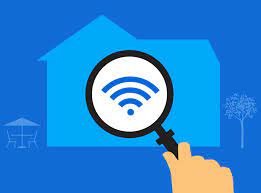The Importance of WiFi Protection
In today’s digital age, WiFi has become an essential part of our daily lives. From browsing the internet to streaming videos and connecting smart devices, we rely on WiFi for almost everything. However, with this convenience comes the risk of security threats that can compromise our personal information and sensitive data.
One of the most crucial aspects of using WiFi is ensuring its protection. Without proper security measures in place, your network can be vulnerable to cyber attacks such as hacking, malware infections, and data breaches. These threats can lead to identity theft, financial loss, and other serious consequences.
So, what can you do to protect your WiFi network? Here are some essential steps:
- Use a Strong Password: Always set a strong and unique password for your WiFi network to prevent unauthorized access.
- Enable Encryption: Use WPA2 or WPA3 encryption protocols to secure your network and encrypt data transmitted over WiFi.
- Update Firmware: Regularly update the firmware of your router to patch security vulnerabilities and ensure optimal protection.
- Disable Remote Management: Disable remote management features on your router to prevent external control over your network settings.
- Use a VPN: Consider using a Virtual Private Network (VPN) to encrypt your internet connection and enhance privacy when using public WiFi networks.
By implementing these measures, you can significantly improve the security of your WiFi network and reduce the risk of falling victim to cyber threats. Remember that protecting your digital assets is essential in today’s interconnected world, so take proactive steps to safeguard your WiFi connection.
Stay safe online!
Essential Guide to WiFi Security: Protecting Your Network with Passwords, Encryption, and More
- How can I secure my WiFi network with a strong password?
- What encryption protocols should I use to protect my WiFi network?
- Why is it important to update the firmware of my router for WiFi security?
- How can I prevent unauthorized access to my WiFi network?
- Should I disable remote management on my router for better WiFi protection?
- Is using a VPN necessary for enhancing the security of my WiFi connection?
How can I secure my WiFi network with a strong password?
Securing your WiFi network with a strong password is a crucial step in protecting your digital privacy and preventing unauthorized access. To create a robust password, start by using a combination of uppercase and lowercase letters, numbers, and special characters. Avoid using easily guessable information like your name or birthdate. Aim for a password that is at least 12 characters long to increase its strength. Remember to change your WiFi password regularly and avoid sharing it with others to maintain the security of your network. By following these guidelines, you can fortify your WiFi network against potential threats and ensure that only trusted users have access to it.
What encryption protocols should I use to protect my WiFi network?
When it comes to protecting your WiFi network, choosing the right encryption protocols is crucial in safeguarding your data and privacy. It is recommended to use WPA2 or WPA3 encryption protocols for enhanced security. These protocols encrypt data transmitted over your WiFi network, making it more difficult for cyber attackers to intercept and decipher sensitive information. By implementing strong encryption protocols, you can significantly reduce the risk of unauthorised access and protect your digital assets from potential threats.
Why is it important to update the firmware of my router for WiFi security?
Updating the firmware of your router is crucial for WiFi security because it helps to address known vulnerabilities and weaknesses in the device’s software. Manufacturers regularly release firmware updates to patch security flaws, improve performance, and enhance overall stability. By keeping your router’s firmware up to date, you ensure that it has the latest security features and protections against potential cyber threats. Neglecting firmware updates can leave your network exposed to attacks that exploit known vulnerabilities, putting your personal data and devices at risk. Therefore, regularly updating the firmware of your router is a proactive measure to strengthen your WiFi security and maintain a safe and secure network environment.
How can I prevent unauthorized access to my WiFi network?
To prevent unauthorized access to your WiFi network, it is essential to implement strong security measures. Start by setting a unique and complex password for your WiFi network, avoiding common phrases or easily guessable combinations. Enable encryption using WPA2 or WPA3 protocols to secure your network and encrypt data transmission. Regularly update your router’s firmware to patch any security vulnerabilities. Additionally, consider disabling remote management features on your router to prevent external control over your network settings. By following these steps, you can effectively protect your WiFi network from unauthorized access and potential security threats.
Should I disable remote management on my router for better WiFi protection?
Disabling remote management on your router is a recommended security practice for enhancing WiFi protection. By turning off remote management, you reduce the risk of unauthorized access to your router’s settings from external sources. This precaution helps prevent potential security breaches and keeps your network more secure. It is advisable to disable remote management unless you specifically require remote access for troubleshooting or configuration purposes, in which case you should implement additional security measures such as strong passwords and IP restrictions to mitigate risks effectively.
Is using a VPN necessary for enhancing the security of my WiFi connection?
When it comes to enhancing the security of your WiFi connection, using a Virtual Private Network (VPN) can be a valuable tool. While not always necessary, a VPN adds an extra layer of encryption to your internet traffic, making it more difficult for hackers or snoopers to intercept your data. This is particularly important when using public WiFi networks, where the risk of cyber attacks is higher. By using a VPN, you can ensure that your online activities are kept private and secure, providing you with peace of mind while browsing the web.

